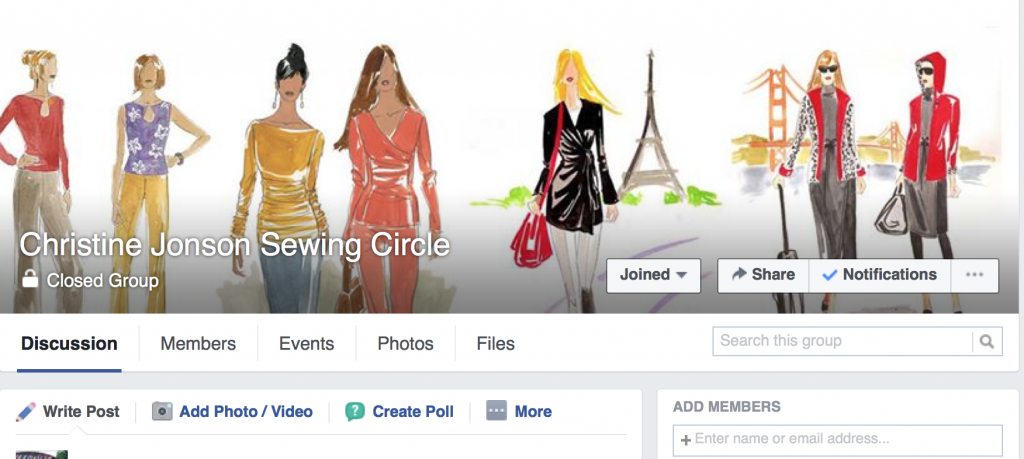Facebook has grown into the largest online community in the world, in part, because it has fostered the ability for people to have private discussions within a larger online space. No other social media platform has the privacy controls Facebook has. And it’s propelling growth of the network, even among returning Generation Z who had been flocking to other social tools.
Facebook is, for many businesses, a conundrum. Customers are there, but Facebook rarely shows brand posts to them any more. Facebook’s newest algorithm changes demoted brand posts below posts by friends, so that even fewer of the few posts by brands show. What does this mean for marketers? You need to set up your own online community to have any real traction.
What’a page versus a group?
Facebook handles groups differently than pages. Anyone can like a page and see the posts. Pages allow for people to post content and comments. But groups allow for true private discussion – and Facebook rewards posts from groups by treating them the same way as they do photos from your best friend – it shows these posts in your newsfeed. Facebook assumes by membership in the group, you want to see the group’s messages. Businesses who can get customers to rally together can do well with groups over pages.

Organizations that need places for private or even secret discussions can find these on Facebook too. Let’s profile two types of organizations, one, a peer-to-peer breastfeeding support group and the other, a hobby group. The former is run by a collective of local La Leche League groups. While La Leche League does not endorse the use of online support, these groups sprung up out of the peer-to-peer in-person support and now are a point of entry for the in-person support traditionally offered by the groups. They offer mothers the chance to ask question about breastfeeding and enable her to find and attend local in-person meetings and access support help for breastfeeding. These types of health care support groups are flourishing on Facebook because they offer mobile discussion options, threaded and nested conversations, and a way to hide the group from searchers looking to troll with nasty comments.
Setting up a Facebook Group
From your existing personal page, select the far right tab on your computer’s version of Facebook and choose Create Group. You can decide if you want a public, private or secret group.
- Public groups are just that – open for anyone to join.
- Private will show a group description and information if someone does a search and offers a Join button to the prospect.
- Secret groups cannot be searched or found, and a member of the group must invite the new prospect to the group.
Promoting your group
Once your group is up, you need to invite friends. You can only invite those you are friends with, so be sure to have a ‘seed list’ of people to invite. From there, it’s simple marketing – promote your group on your e-mail newsletter, on your web site and with those that communicate with your organization. Ask others to invite their friends. Even secret group holders have an email address that says “email us to be added to our secret group” (know that someone’s vetting you before you are added.)
Managing your group
Before too long, you’re going to have too many members to manage it on your own. Enlist those active group members who are the most helpful to others, who are on the platform and the group regularly to moderate the group. Most will do this without compensation, but it’s always nice to reward them with a small gift or two from time to time, as thanks for their service. These moderators will be your eyes and ears on the group, ensuring that it stays helpful, on topic and removes trolls and bad posts immediately. They’ll tag you when something needs your attention, which makes it great for customer service!
What could possibly go wrong?
Many people = many opinions. Wherever we gather, we can expect to encounter people with differing opinions from one another. And online, behind it’s anonymity of the computer screen, offers trolls a unique way to be mean. Establish rules early on – many groups do this by requiring new members to “like” a pinned post with the rules in it –even if they haven’t read them, they can be banned from the group if they’ve violated the rules they said they reviewed by liking the post. Of course, you can ban anyone at any time, but it’s helpful to have some guidelines so you can keep control of the community when the inevitable happens.
Security can be an issue – if someone with a hacked FB account gets in, they can invite and then cause havoc with members that have engaged with them. Check out member profiles – the more groups the individual is a member of (within reason, 10 or 20 is reasonable, 500 is not), the more likely it’s a fake account designed to spam or invite unsuspecting group members to click on malware links.
Read the terms of service
Facebook owns the content you post on a group – and there are some specific concerns for organizations that use or share Protected Health Information or Personally Identifiable Information, so be sure your legal team is OK with Facebook and provide your users with some ground rules on a pinned post on the group.
What types of groups do well on Facebook:
Breastfeeding support (like other types of health care support) is ideal for Facebook – people post at all hours with questions and invariably find someone else up at those wee hours. These groups flourish with good moderation, professional support and intervention.
Hobby groups also do well on Facebook – if your business supports a hobby (home brewing, knitting or sewing groups if you own a store or retail site or fitness groups if you own a gym) these communities also do well. Some can get out of hand – members who are seeking “a place to vent that my family can’t see” often take over the group for hours or days with off topic posts. Plan to keep them on topic with good use of removing posts, and telling others to keep to the topic at hand.
Getting a business or organization’s group going
Initially you won’t have a lot of traffic or discussion, so it’s important to invite the right people so the group can begin to take on a life of it’s own. Have your moderators spur on discussion regularly to ensure the group remains lively. Feel free to keep it on your business’s topic (e.g. this is for discussing homebrewing around XYZ Homebrew Supply only) if you think you can do that and still have a thriving community. If you’re a curriculum developer, set up a group for teachers to share ideas and best practices. If you’re a behavioral health therapy practice, set up a secret group for clients to have discussions. Organizations that serve a nationwide or worldwide audience will have the largest audience but even a small local group can develop a strong following. If your group offers independent support, be clear that it’s not just for one organization, but many can join in the discussion.
After a few months, you should begin to see a lively discussion erupt from member to member posts. Encourage this and moderate all discussions. As your organization gets larger, you might need a community manager from your social media team or company to help out.
What if you find a group out there just like yours?
Don’t reinvent the wheel. Collaborate! Join their group and get involved. Don’t be afraid to change up your old group if it’s dwindled and stale. Search before you set your group up to be sure someone else doesn’t have it. If you’re a business and there’s already a customer-created group, join it. Be active on it, and be respectful of not being too ‘salesy’ but also offer good support for members. Facebook has some helpful tips for group administration too. Use them.
Just like in person communities, online communities take work. They will take on a life of their own – sometimes that’s a great thing, other times, it’s more work. But in the end, that’s what humans do best – we find our tribe and hang with them.
Want to know more?
Download the How to Create Engaged Online Communities Powerpoint to get more helpful tips and understand other options for online community building besides Facebook. Presented to the National Alliance on Mental Illness, Michigan Conference. This presentation applies to professional groups, support groups or hobby groups and each will find information that is helpful and informative.






